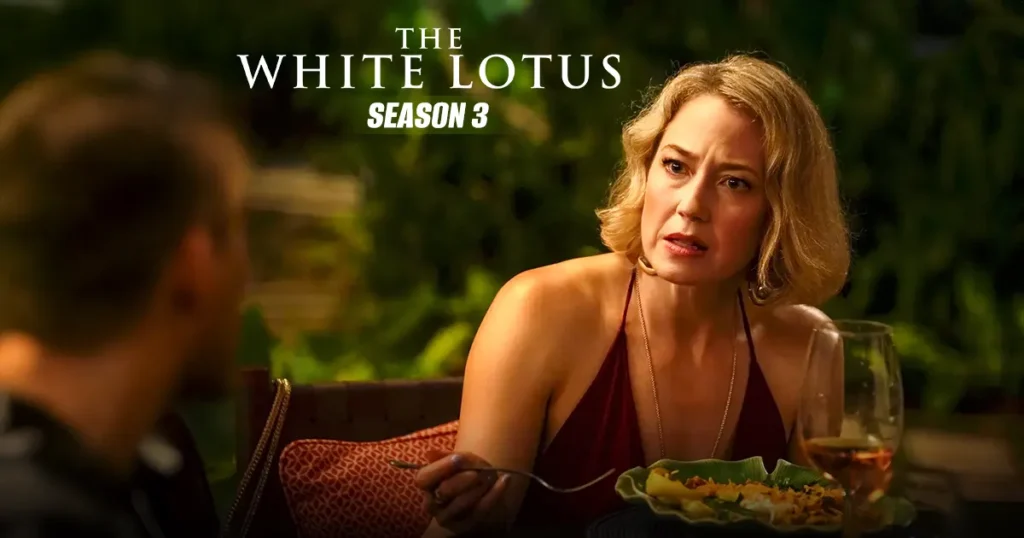The White Lotus has always thrived on mystery, character depth, and sharp social satire, and Season 3 is no exception. Episode 7, titled Killer Instincts, continues to peel back the layers of its ensemble cast, revealing their strengths, weaknesses, and ever-shifting dynamics. The show’s creator, Mike White, employs his signature style of storytelling—giving just enough background information to explain character choices while leaving room for interpretation.
This episode intensifies the tension with key themes of ambition, deception, and personal reckoning. As we inch closer to the season finale, let’s unpack the nuances of Episode 7, from character arcs to thematic symbols and critical moments that define the narrative.
Minimalist Backstories and Character Complexity
One of the defining traits of The White Lotus is its minimalistic approach to character backstories. Instead of providing detailed histories, White relies on stereotypes and character traits to build an initial impression. This approach allows audiences to fill in the gaps, making characters more enigmatic and unpredictable.
Take the Ratliff siblings, for example. The older brother exudes cockiness, the sister radiates rebellion, and Lochlan remains an undefined enigma. Their past remains mostly unspoken, allowing their present behaviors to dictate audience perception. Similarly, Saxon’s lack of depth becomes glaring in this episode, especially during his conversation with his father, Tim. His self-aware monologue about tying his entire career to his father’s success feels out of place, given his previously established persona. This scene underscores one of the challenges in White’s storytelling method—sometimes, the ambiguity works, and other times, it hinders character believability.
Rick and Frank: Unraveling the Bangkok Plot
Rick’s vendetta against Jim takes center stage in this episode, leading him and Frank into an ill-prepared encounter at the Hollingers’ residence. Given their supposed expertise in deception, their improvisational blunders come off as almost comical. Frank’s portrayal of a Hollywood director falls apart under scrutiny, as he struggles to recall even basic film titles.
Rick’s focus, however, isn’t on their flimsy cover story but on his personal revenge. He abandons Frank when faced with an opportunity to confront Jim, the man he believes to be responsible for his father’s demise. Their conversation proves anticlimactic—Jim barely remembers Rick’s mother and remains unapologetic for his past misdeeds. This interaction highlights an important theme: the futility of vengeance. Rick’s aggression is reduced to a mere shove, and he leaves unsatisfied. The scene leaves viewers pondering whether revenge is truly ever fulfilling.
Laurie’s Passion Over Reason
Laurie’s storyline takes an unexpected turn when she, frustrated with Jaclyn’s refusal to acknowledge her infidelity, storms off to a Muay Thai fight. Her impulsive decision to seduce Aleksei, a charismatic but shady Russian, backfires spectacularly when he attempts to swindle her for $10,000. His scheme falls apart when his girlfriend interrupts the encounter, leaving Laurie both relieved and embarrassed.
This subplot reinforces the theme of self-destructive tendencies. Laurie’s choices, driven by passion and impulse, repeatedly lead her into problematic situations. Yet, her misstep proves pivotal—while escaping Aleksei’s apartment, she stumbles upon the stolen treasures from the White Lotus robbery. This discovery sets the stage for a high-stakes climax in the season finale.
Muay Thai and the Great Buddha: Symbolism in Episode 7
Throughout the episode, two recurring visual motifs stand out—the Great Buddha of Thailand statue and the Muay Thai fights. These symbols represent contrasting philosophies: peace versus aggression, contemplation versus action.
Mook’s unexpected shift in perspective reinforces this duality. Her admiration for Muay Thai’s raw physicality contradicts her previously reserved demeanor. When she tells Gaitok, “It’s human to fight,” it signals a deeper transformation, urging him to embrace his ambition and assertiveness.
Gaitok’s struggle with his identity and career plays a crucial role in this episode. With his job at risk due to his lack of “killer instinct,” his relationship with Mook also hangs in the balance. Her disappointment in his passive approach to life pressures him toward a pivotal decision. If he acts on the knowledge that the Russians were responsible for the White Lotus robbery, he may not only secure his position but also redefine his sense of self-worth.
Final Thoughts and Predictions for the Finale
Episode 7 masterfully builds suspense as it sets up multiple possible outcomes for the finale. Will Rick find closure? Can Laurie break free from her destructive patterns? Will Gaitok prove himself by exposing the Russians?
Mike White’s storytelling thrives on unpredictability, and with everything on the table—redemption, revenge, forgiveness, or failure—the upcoming episode promises to be an explosive conclusion. Until then, Killer Instincts leaves us pondering the choices that define us and the blurred lines between ambition and recklessness.



